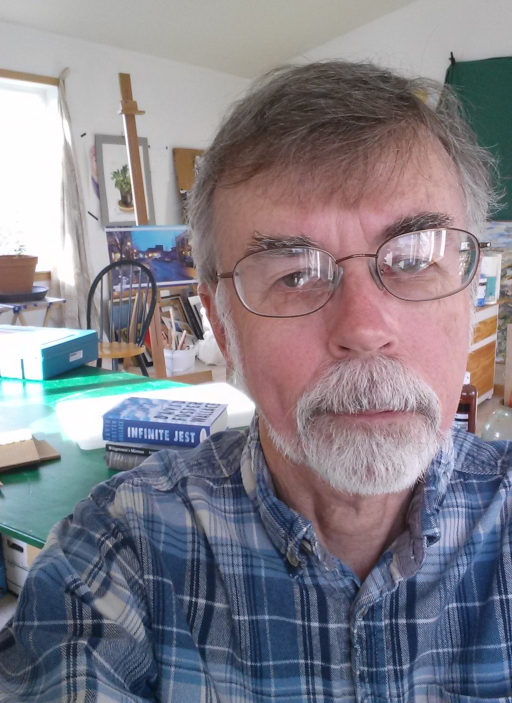Basic Human Incompetencies

In reading The One Body Problem, I hope you trip over a few points of view or ideas not encountered before. I feel that experience is the real joy of reading any fiction. A few years ago I began wondering if religion were a basic human need, or trait, or just something we cooked up and held onto. What if the earliest surviving artwork showed no trace of a religious bent? Well, it appears that religion is pretty much baked into homo sapiens sapiens, at least in the form of shamanism. Clara finds shamanism is still alive in 18,000 CE. And so is Funnelism which grew out of the science based religions, oh, around 7,000 CE. Another query: what experiments are we likely to perform on our unborn children? Where will that lead? Trik is, secretly, different, but Clara doesn’t find him a monster.
The One Body Problem synthesizes ideas taken from many sources. It’s a collage glued together by a plot. As a prediction of the actual future, it can’t possibly be near the truth, especially not sixteen thousand years from now. But, science fiction gives us the license to speculate about moral issues without worrying so much about what’s actually happening today. What if? The One Body Problem asks way more moral questions than it pretends to answer.
My son in law introduced me to China Mieville. His wonderful book, “Embassytown”, tickled my memory, which led me to pull Julian Jaynes’ “The Origin of Consciousness in the Breakdown of the Bicameral Mind” off the shelf after thirty years gathering dust. The Goddess logically follows.
Personally, I don’t have a Goddess companion, nor a demon companion, thankfully. Let’s not make light of the difficulties many of us have with entities of that kind. But sixteen thousand years from now can we not hope for a better future? The human mind is an amazing thing, scary, but full of promise.
Whatever craziness there is in The One Body Problem is my own, no one else need be accused of the flights of silliness or lack of imagination. Insightful and careful critique, especially from Sonya and Alex, has helped me immensely. I would be unable to even begin such a project without the network of family and friends that graciously includes me. Thank you.
Bob 2/14/2021
Table of Contents
| Breaking Wave | 1 |
| Survival Brief | 11 |
| The Drop | 17 |
| The Faerie Kingdom | 38 |
| One Body | 50 |
| Runaway | 74 |
| Trapnel | 93 |
| Liaison | 97 |
| Lone Wolf | 99 |
| Uncertain Directions | 109 |
| The Menagerie Ships | 122 |
| Sheep and Whiskey | 126 |
| Giles and the Roaming | 143 |
| Sticks and Stones | 154 |
| Change of Command | 166 |
| Diplomacy | 194 |
| Awakening | 221 |
| Blizzard | 236 |
| The Journal of Birth and Death | 252 |
| Against Medical Advice | 267 |
| Project Midas | 279 |
| Coda | 284 |
| Last Word | 285 |
References
A number of books influenced my thinking while composing this book, some directly, some obliquely, some strongly, and some in subtle ways.
- “Hallucinations”, Oliver Sacks, 2012.
- “A History of God, The 4,000-Year Quest of Judaism, Christianity and Islam”, Karen Armstrong, 1993.
- “In the Company of Crows and Ravens”, Marzluff and Angell, 2007.
- “Mind of the Raven”, Bernd Heinrich. 2007.
- “The Origin of Consciousness in the Breakdown of the Bicameral Mind”, Julian Jaynes, 1976.
- “Out of Africa”, Isak Dinesen (Karen Blixen), 1938.
- “Philosophy in the Flesh”, George Lakoff and Mark Johnson, 1999.
- “Punch and Judy: A Short History with the Original Dialogue”, John Payne Collier, illustrated by George Cruikshank, 1929.
- “The Punch and Judy Show: History, Tradition and Meaning”, Robert Leach, 1985.
- “The Quilts of Gee’s Bend”, John Beardsley, William Arnett, Paul Arnett, Jane Livingston, Alvia Wardlaw, Peter Marzio, 2002.
- “States of Consciousness: Experimental Insights into Meditation, Waking, Sleep and Dreams”, Dean Cvetkovic, Irena Cosic (Eds.), 2011.